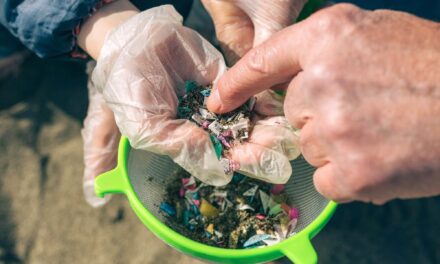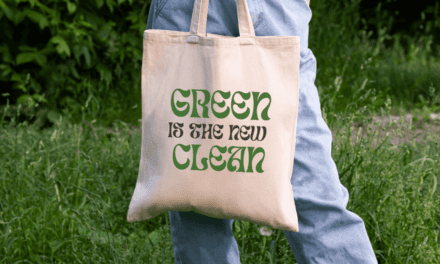
Sustainable Shopping is About More Than Being Eco-Friendly
Sustainability has become a massive movement in recent years, with more and more people looking to lead eco-friendly lives. And it’s easy to see why more people are joining the movement every day.
But sustainable shopping isn’t just about doing your part to help the environment; it’s also about advocating for fair wages and human rights and taking a stand against ethical issues within supply chains. Can you really help work toward fair wages and fight against human rights issues with your purchasing decisions? (Hint: The answer is yes.)
We’ll first discuss what it means to be environmentally friendly in your buying decisions. Then, we’ll point out five ways sustainable shopping differs from buying eco-friendly products and calling it a day.
Contents
What is eco-friendly shopping?

Eco-friendly shopping is a term used to describe shopping habits that are considered to be environmentally friendly. This can include anything from choosing products that are made from recycled materials to avoiding products that have a high carbon footprint.
Eco-friendly shoppers are generally mindful of the fact that fast fashion is highly problematic and pollutes the Earth. In recent years, there has been a growing movement toward greener brands and products as more and more people become aware of their shopping habits’ impact on the environment.
Environmentally-friendly products might be:
- Plastic-free, polyester-free, or made from organic materials
- Contained in compostable packaging or 100% recycled packaging
- Made with plant-based or low-impact dyes and textiles
- Manufactured or sourced locally
- Secondhand or pre-owned
- Built sturdily so that they don’t easily break
While it is not always possible to be 100% eco-friendly, even small changes can make a big difference. Attempting to be environmentally responsible when shopping is a great place to start your journey to sustainable living.
What is sustainable shopping, and how is it different?
Sustainability can be defined as “the simultaneous pursuit of human health and happiness, environmental quality, and economic well-being for current and future generations.” (Penn State University). And we love this definition because it truly encapsulates what we believe in. Simply put, there is more to sustainability than being aware of environmental issues.
Note: For more information on sustainability, we recommend checking out the United Nations Sustainable Development Goals.
Let’s talk about the ways sustainability is different and what what sustainable shoppers should consider aside from buying greener products.
Supporting equality
Gender equality and the support of marginalized groups are both morally imperative and crucial to sustainability. A sustainable society meets the needs of the present without compromising the ability of future generations to meet their own needs.
To achieve this, we must ensure that everyone has an equal opportunity to participate in and benefit from social, economic, and environmental development. This includes ensuring that women and men enjoy equal rights and opportunities and that marginalized groups are not left behind.
When everyone can participate fully in society, we can make better decisions about using our limited resources sustainably. We can also create a more just and equitable world, which is necessary for achieving long-term sustainability. Supporting businesses addressing gender equality and equality for all is one way to ensure that we are shopping sustainably.
Avoiding child labor and forced labor

Forced labor is defined by the International Labour Organization (ILO) as “all work or service which people are coerced to do against their will, under threat of punishment or other forms of duress.”
Child labor is a form of forced labor defined as work that is “likely to harm the health, safety, or morals of children.” It includes forced or harmful work to a child’s education or development. According to the ILO, 160 million children are in child labor worldwide. Of those, 74 million are in hazardous work that could potentially kill them.
Many products we use every day are produced by child labor or forced labor. For example, it is estimated that 17% of the world’s cocoa is produced by child labor, and 14% of sugarcane is harvested by forced labor. When we buy products that may have been produced by child labor or forced labor, we are supporting these horrific practices. To shop sustainably, we must avoid products that may have been produced by child labor or forced labor and instead choose products from brands committed to ethical sourcing. Look for certifications like Fairtrade, which guarantees that farmers and workers are paid a fair price for their products.
Advocating for fair wages
Wage exploitation is a significant problem in many industries and creates unnecessary suffering. When workers are paid fairly, they can provide for their families and have a better standard of living.
This, in turn, reduces consumption and helps to preserve our planet’s resources. In addition, fair wages help create a level playing field between businesses. When all businesses are required to pay their workers a fair wage, it ensures that businesses cannot gain an unfair advantage by exploiting their workers.
As a result, advocating for fair wages is essential to creating a more sustainable world. You can do this by supporting brands and companies with wage transparency that are Fair Trade Certified.
Better working conditions for workers

One key element of sustainable shopping is supporting businesses with better working conditions for their employees. We probably don’t have to tell you that no one deserves to work in unsanitary or dangerous conditions.
Unfortunately, these conditions are all too common, particularly in developing countries and around the world. We support these unethical practices when we buy products from brands that don’t treat their workers well. To shop sustainably, we must choose products from brands committed to providing workers with safe and healthy working conditions.
You can learn about a company’s working conditions by looking for certifications like Fairtrade or the Fair Labor Association, which advocates supply chain transparency. These certifications guarantee that workers are treated fairly and given safe working conditions.
Supporting social good through business
Businesses are responsible for ensuring their practices are sustainable and have a positive social and environmental impact. One way businesses can make a difference is by donating part of their profits to causes that advance social good or protect the environment.
When consumers purchase products from businesses that engage in this type of giving, they are not only supporting the business but also the cause. This helps to create a cycle of giving that can have a significant impact on the world.
It also communicates to other businesses that sustainability and social responsibility are top of mind for consumers. As more businesses adopt these practices, we will see a positive change in how corporations operate and the world around us.
In summary
When we shop sustainably, we not only help the environment but also promote fair wages, safe working conditions, and social good. We can make a difference in the world by choosing products from brands committed to these practices. Buying an eco-friendly product is not enough if that product supports exploitative labor practices.
It’s all about signaling to other companies and corporations that we are serious about change. The more consumers demand sustainable practices, the more businesses will adopt them. So let’s make our voices heard!

























